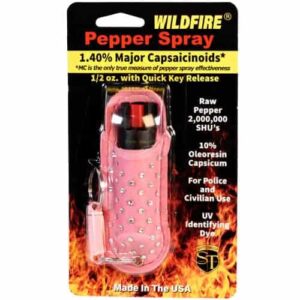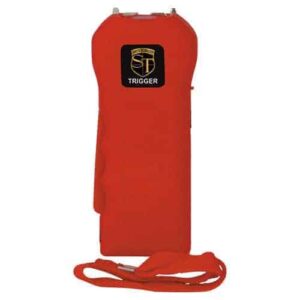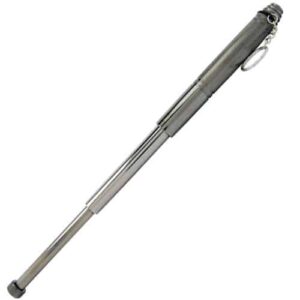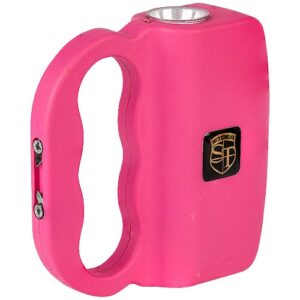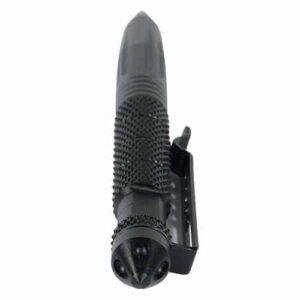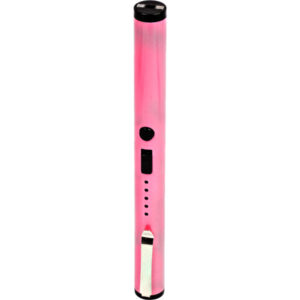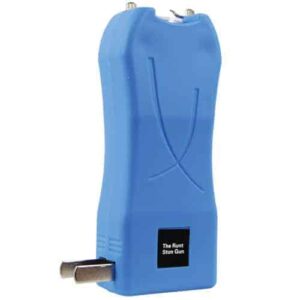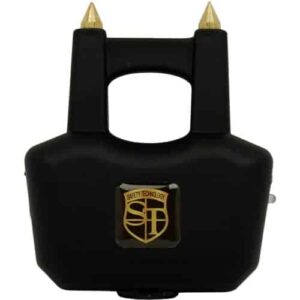Embarking on a fascinating voyage into linguistic realms, this article unravels the intriguing topic of translating the term “Pepper Spray” into Spanish. It’s a unique linguistic journey to discover how a term so common in English is expressed in the world of the Spanish language. As you go through this enlightening piece, you’ll explore the direct translation, cultural context, and usage of this term in Spanish-speaking regions. It’s a delightful fusion of language learning and cultural understanding, all centered on something as simple yet impactful as ‘pepper spray’.

Table of Contents
ToggleIntroduction
Hello there! Congratulations! In your pursuit of learning all there is to know about pepper spray, you’ve come to the right place. Whether you are researching self-defense tools or simply curious about pepper sprays, this article aims to provide you with comprehensive and detailed information on what is pepper spray, its uses, legality, types, and formulations, appropriately using it, choosing the suitable pepper spray, and its relevance in Spanish-speaking countries. So, without further ado, let’s dive deep into the world of pepper spray.
What is Pepper Spray?
Definition
Pepper spray, also known as OC spray from ‘Oleoresin Capsicum’, is a lachrymatory agent, a compound that makes your eyes tear up when exposed. It’s used as a disabling tool to incapacitate an individual temporarily.
Composition
Pepper spray’s primary active ingredient is capsaicin, which is derived from the fruit of plants belonging to the Capsicum genus. This ingredient causes the instant burning sensation when it comes in contact with the skin or eyes.
Effects
Pepper spray can cause temporary blindness by forcing the eyes to close, difficulty breathing, and an intense burning sensation to the skin, affecting the attacker’s ability to function properly.
Uses of Pepper Spray
Self-defense
Pepper spray is a popular self-defense tool due to its ease of use, accessibility, non-lethal nature, and potent capability to deter a potential threat.
Law enforcement
Law enforcement agencies globally use pepper spray to manage crowd control, subdue criminals, and carry out arrests without causing critical harm.
Animal deterrent
Pepper spray is effective in deterring offensive animal behavior, primarily used against bears to avoid or survive attacks in wilderness areas.
Legality of Pepper Spray
Laws and regulations
Pepper spray legality varies by country, state, and municipality, hence it’s imperative to check with local laws before purchase and use.
Restrictions
There might be restrictions on the pepper spray’s size, the age of purchaser, and limitations on where it can be used or carried.
Requirements for purchase
In general, you’d be required to be 18 years or older. Some locations may require a permit, and in certain places, it’s illegal to purchase over the internet.

Types of Pepper Spray
Stream
Stream pepper sprays expel the agent in a line thereby having a longer range, making it less likely to be affected by wind or rainy conditions.
Spray
Pepper spray in the form of a mist has a wider range, making it easier to hit the target and can affect multiple targets at once.
Gel
Pepper gel is less affected by wind as it doesn’t aerosolize like spray. The thick gel sticks to the attacker, making it harder to remove.
Foam
Pepper foam is similar to gel, sticking well to the attacker. When the attacker tries to wipe it off, it rubs into the skin, causing higher discomfort.
Pepper Spray Formulations
OC (Oleoresin Capsicum)
OC is the most common formulation of pepper spray. It’s a type of oil extracted from chili peppers and can cause severe inflammation.
CS (Orthochlorobenzalmalonitrile)
CS is less frequently used and is technically not a pepper spray, but a tear gas. Its effects can be more potent, but it takes longer to take effect than OC.
Mixed Formulations
Some pepper sprays combine the effects of OC and CS for a more potent mix, causing quicker and more powerful incapacitation.

How to Use Pepper Spray
Proper technique
It’s crucial to learn the correct technique to use pepper spray – aim for the attacker’s face, use short bursts, and use your thumb as the base for better control.
Safety precautions
Avoid wind direction, do not use it too close to the target, always have it readily accessible, and never rely totally on it as your only self-defense strategy.
Legal considerations
Before using pepper spray, ensure that it is legal in your jurisdiction and that you are using it justifiably in a situation of imminent danger.
Choosing the Right Pepper Spray
Factors to consider
When selecting a pepper spray, consider its size for portability, the delivery method considering your comfort, the strength of the spray, and the safety mechanisms to prevent accidental discharge.
Brands and products
There are numerous brands in the market offering pepper sprays, each with unique offerings. Spend some time researching and reviewing these brands to find the right fit.

Pepper Spray in Spanish
Translation
In Spanish, pepper spray is referred to as “spray de pimienta” or “gas pimienta.”
Usage in Spanish-speaking countries
In many Spanish-speaking countries, pepper spray is a common self-defense tool. However, rules and regulations regarding its use can vary substantially.
Market availability
There’s a wide availability of pepper sprays in these countries in different types and brands to cater to the diverse needs of the populace.
Conclusion
Pepper spray is a potent self-defense tool that can offer an extra layer of protection when used correctly and legally. Whether you’re considering it for personal use or simply broadening your knowledge, understanding the intricacies of this powerful tool is beneficial. It’s also heartening to see its extensive use not just in English-speaking regions, but in Spanish-speaking countries as well, testifying to its universal acceptance and effectiveness. Stay safe and take care!




